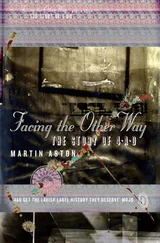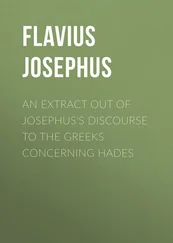“No,” said Selena. “No, I didn’t. I thought, as I have said, that if the police searched the flat they would find you in the bathroom, perhaps feeling not quite well, and I felt anxious. If I had known that they would find you on the balcony, unconvincingly disguised as a schoolgirl and surrounded by little packets of illegal substances, I would not have felt less so.”
She had accordingly thought it right to inquire casually whether their visitors happened to have a search warrant or anything of that kind. The taller one, who seemed to be the spokesman, admitted that they had not; but they supposed, he said, that if Mr. Galloway had nothing to hide he wouldn’t mind them taking a look round to see that everything was aboveboard. Ignoring anguished looks and attempted disclaimers from Rupert — who fortunately, however, seemed by this time incapable of coherent speech — she answered firmly that Mr. Galloway would mind very much indeed.
“The taller one shrugged his shoulders and said that if that was our attitude they’d better go back to the station for further orders, and he hoped we wouldn’t blame them if it looked suspicious in their report. I assured him that we wouldn’t and they took their departure. Together, of course, with Rupert’s flashlight camera.”
I heard in Selena’s voice a note of irony, and the upward curve of the corners of her mouth was a fraction more pronounced than usual. I began to think that things were not what they seemed.
“While Rupert went up to the roof, to tell his guests that the forces of law and order had now retreated and they might safely return to the comfort of the drawing-room, I telephoned Mortlake police station. I told them that we had received a visit from a PC Golightly, that being the signature on the receipt for the camera, and a colleague of his whose name I did not know. They informed me that there was no one among their officers of that name, and that none of their force had been sent that evening to the address I mentioned.”
“It just shows,” said Ragwort, “how careful one should always be to behave like a respectable house-holder. Even if one isn’t.”
“Especially if one isn’t,” said Julia.
“Thinking,” continued Selena, “that Rupert would be interested in this information, I followed him on to the roof. He became, on hearing my news, extremely indignant. Uttering various intemperate threats, he went to the parapet and looked over, in the hope of catching some glimpse of the impostors making their departure. I too, from curiosity rather than indignation, tried to look over the parapet. But it was too high for me to see anything nearer than the far bank of the river. So you do see, Hilary,” said Selena, leaning back and finishing her Frascati, in the manner of one who brings a well-rounded narrative to a logical and satisfactory conclusion, “you do see, don’t you, that it can’t have been an accident?”
My curiosity about the spurious policemen had distracted my mind a little from the chief purpose of the narrative. Not allowing myself to be provoked into any precipitate inquiry as to its relevance, I refilled all our glasses with sufficient deliberation to permit myself time for thought.
“I suppose,” I said eventually, “that you are — let me see, about five foot four, Selena?” She nodded. “The parapet then, if you could not see over it, must be of a similar height. And Deirdre — Deirdre, I seem to remember, was rather a small girl. Two or three inches shorter than you, I fancy?”
“At least that,” said Selena.
“And your suggestion is, I suppose, that a young woman who chooses to watch the Boat Race from a balcony some two inches higher than herself—”
“Must be singularly indifferent,” said Julia, “to the outcome of the contest.”
“While the notion of her leaning over it becomes, I agree, distinctly improbable. Are you quite sure, Selena, about the height of the parapet? It seems odd that it should be so high as to obstruct the view of the river.”
“Quite sure,” said Selena. “I thought at the time what a pity it was. It does, however, prevent the roof terrace from being overlooked from the other blocks of flats in the neighborhood: it seems that the designer preferred privacy to prospect. And it would be more sheltered, I suppose, if one were sitting out there with a breeze blowing.”
I asked Selena if it would be possible for her to draw for me a plan of Rupert’s flat. The product of her labors with ballpoint and table napkin, being possibly also of some interest to my readers, is reproduced below.

I was still studying it when Cantrip arrived, showing no signs of weariness from his labors in Fleet Street. The waiters of Guido’s gathered round him with affectionate solicitude: it is their desire to encourage all their clients to a comfortable and prosperous plumpness, and Cantrip is an enduring challenge to them. The slenderness of Ragwort may be attributed to restraint; but Cantrip’s look of artistic semi-starvation survives any quantity of pasta or profiteroles.
“They’ve kept you very late,” said Timothy. “Has the gossip columnist been sailing more than usually close to the wind?”
“No,” said Cantrip. “No, it’s not that — I’ve been chatting up this bird. Hang on a minute while I order some food, and I’ll tell you all about it.”
“No doubt,” said Ragwort, with weary distaste. “You generally do.”
“All right then, I won’t,” said Cantrip. “What I thought was, if you were still trying to find out about Deirdre, you might all be quite interested. But if you’re not, I won’t bother.” Turning a shoulder towards Ragwort in a manner indicative of pique, he addressed himself to the nearest and most attentive waiter. “I’ll have a steak, please. You needn’t cook it much, I’m practically dying of hunger.”
“Why?” said Selena. “Who was this girl, Cantrip?”
“Oh, no one special.” Cantrip was elaborately casual. “Just a bird on the staff of the Scuttle. She covered the inquest on Deirdre. And I’ll have some mushrooms with it and lots of fried potatoes and some salad.”
“Cantrip, don’t tease,” said Julia. “Tell us what she said.”
“Shan’t, so there,” said Cantrip with dignity. “Not until Ragwort takes back his malicious innuendo.”
“A malicious innuendo? On my part? My dear Cantrip,” said Ragwort, “what can you mean?”
“You know jolly well what I mean. What you innuended was that I kept boring you sick with unsavory stories about my success with birds, and I want a retraction and an apology. That means you’ve got to say it’s not true and you’re sorry you said it.”
“My dear Cantrip,” said Ragwort, “of course it’s not true that you bore me with unsavory stories of your success with women. I find them quite entertaining. And if I’ve said anything which could be construed as implying otherwise, then I am very sorry.”
Mollified by this graceful apology, Cantrip consented to tell us what he had learnt of the circumstances surrounding Deirdre’s death.
“The whole lot of them were there — you know, all the ones who turned up for the trust bust. It’s a sort of family tradition for Rupert to give them all lunch on Boat Race day. Looks as if he mostly does it to please Camilla — the word is it’s quite important for him to stay on the right side of her. He fancies himself as some kind of financial whiz kid, but everything he does seems to come unstuck — mention his name near our City Desk and they start talking about bargepoles. So he’s probably in a rather dodgy position moneywise, and people think he’s counting on Camilla to do the grateful daughter bit when she comes in for the loot.”
Читать дальше













